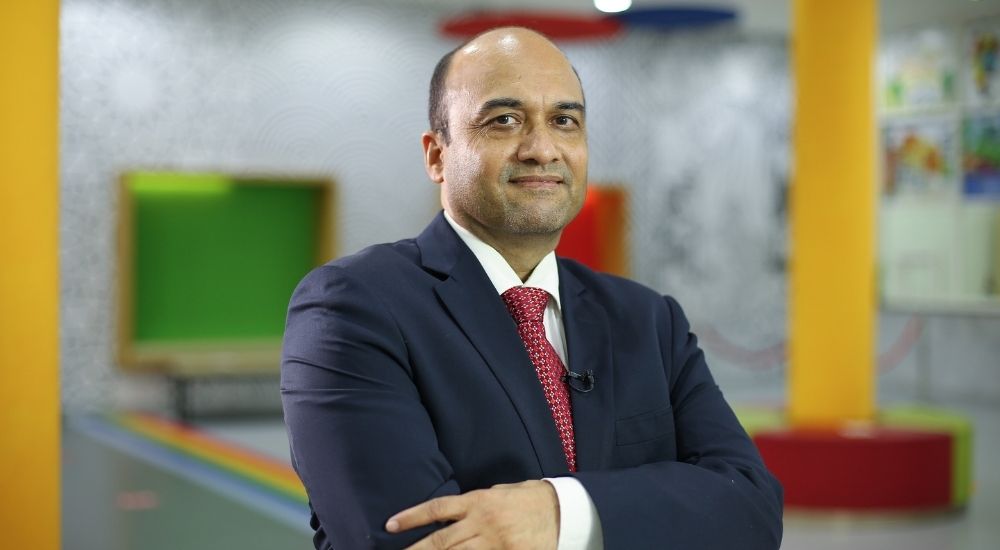It all unfolded very quickly in March 2020. A hint of a disease spreading, and suddenly it was hanging heavily on everyone’s mind, from the government to families and even individuals. Thereafter, what has happened after that is a story of resilience, innovation, and a remarkable amount of hard work by teachers and other school staff.
2020 has dramatically changed the contours of education for all students from early years to college. This pandemic has revolutionised the entire education system globally and has compelled businesses to re-invent and innovate their processes. It has ensured that what was for many years just a flirtation with technology and different pedagogical techniques of knowledge delivery to the students is no longer just that.
Things are not the same anymore. What used to happen in January 2020 is a distant past. While the changes are excellent on many fronts, it has also brought to the fore and exposed some of the deficiencies prevalent in the education system worldwide. It has also brought in new threats which we had never thought of up till last year.
Most of the teachers are responsive and ready to embrace new options and opportunities to scale up to the advantage of all students. However, continuous training will be required to ensure that the changes in practices are long term, economical, and viable. Technology is the leading carrier and will be critical to all knowledge delivery media henceforth. Because of the substantial use of social media and smartphones almost everywhere, the medium was ready and utilised effectively in all major markets.
In most societies, this will require systematic strengthening. Most schools are sincere in their approach to ensure that learning gaps are not created. Infrastructure will have to be strengthened going forward. Schools will likely be more of skill centres and places for collaboration, and the learning will happen 24×7.

The days of five hours of daily schooling for five days a week will slowly disappear. There will have to be a complete overhaul of how the timetable is defined and the operational timings of the classes. The classes will be more flexible on timings and composition. There are more extensive opportunities to execute cross-campus, and cross geographical knowledge exchange should be encouraged rather than getting hooked on to local teachers. An extraordinary scope will have to be created to use this experience to deliver a more focused and targeted education using technology and the right combination of online and face to face knowledge exchange.
Along with the academic knowledge exchange, soft social and emotional skills will also have to be taught. There is a likely danger of individuals feeling lonely and isolated with increasing reliance on distance learning. Mentoring and counselling systems will have to be developed and continuously strengthened. Global citizenship, collaboration skills and global mindedness will get the prominence it has rarely acquired. That cannot be lip service anymore.
Children will be taking a lot of online courses beyond what the school can deliver, and they will have the freedom to fix their learning schedule and pace. Now the student will drive the pace of her learning while doing many other activities like sports, internships and more. Entrepreneurship and innovation will have to be encouraged as the nature of jobs will change from fixed and permanent to contractual and freelance.
It will be Jack of all trades and Master of few. This will bring a massive change in the way societies have looked at as far as education is concerned. Instead of one expert now, it will be a group of experts for almost all tasks. The skill sets will be transcending the subject boundaries. For example, engineering tech will become indistinguishable from medical science. So, the expert group will consist of several people as equal partners.
The education and learning landscape are undergoing a magnanimous shift that will teach students to become self-teachers in part; and well-rounded, aware, compassionate, and creative global citizens in whole. Teaching and learning innovations are bursting at the seams to make education boundless. It truly is an exciting time to be a student right now.
Key Takeaways
- Continuous training will be required to ensure that the changes in practices are long term, economical, and viable.
- Technology is the leading carrier and will be critical to all knowledge delivery media henceforth.
- Schools will likely be more of skill centres and places for collaboration, and the learning will happen 24×7.
- Entrepreneurship and innovation will have to be encouraged as the nature of jobs will change from fixed and permanent to contractual and freelance.
- Children will be taking a lot of online courses beyond what the school can deliver, and they will have the freedom to fix their learning schedule and pace.
- Along with the academic knowledge exchange, soft social and emotional skills will also have to be taught.
Amol Vaidya of Global Indian International School Dubai writes how the pandemic has revolutionised the entire education system.




